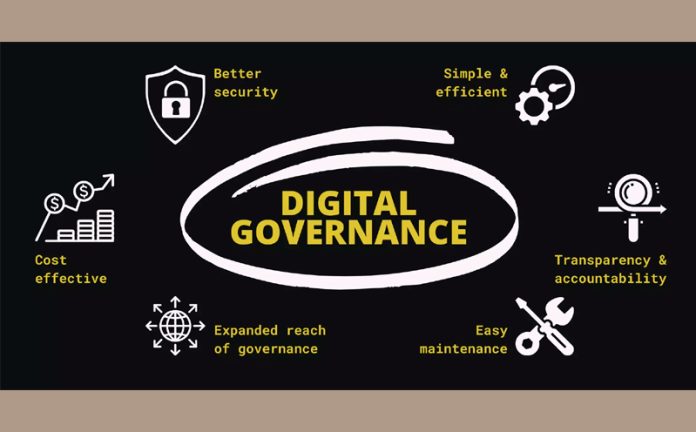The Union Territory of Jammu and Kashmir is making significant strides in digital governance with its recent initiatives to extend the e-office system to the Tehsil level and transition its operations to the highly secure RailTel Cloud infrastructure. These developments represent a transformative leap toward efficient, accountable, and transparent governance, cementing J&K’s place as a leader among Indian States and Union Territories in adopting e-governance. The e-office-initially implemented in the Civil Secretariat, including Raj Bhavan, and later extended to 450 district-level offices-has been a game-changer for the UT. By eliminating the reliance on physical files, e-office has not only streamlined administrative processes but also set a benchmark for timely and efficient file disposal. The impressive 97 percent disposal rate, recorded in over 300 offices is a testament to the effectiveness of this system. However, the Government’s decision to extend e-office to the Tehsil level demonstrates its commitment to expanding the scope of digital governance and bringing its benefits to the grass-roots level.
Extending the e-office to the Tehsil level is expected to yield transformative outcomes. Tehsil offices are the primary interface between citizens and the Government, handling critical services such as land records, revenue disputes, and social welfare schemes. By digitising file management and adopting a centralised system, the Government can ensure greater accountability and efficiency at this vital administrative level. One of the most promising outcomes of this initiative is the potential to monitor manpower utilisation effectively. With the digital tracking of workloads, the Government can identify surplus staff in some offices and redeploy them to areas experiencing shortages. This data-driven approach to resource management will address long-standing challenges in public service delivery, enhancing the overall efficiency of governance in the UT. Furthermore, digitising records and workflows will enable real-time monitoring of file movements and processing times. This will be a powerful deterrent against bureaucratic delays and corruption while improving public trust in Government institutions.
The Government’s decision to shift e-office operations to the RailTel Cloud under the National Informatics Centre Services Inc. marks a significant milestone in its journey toward robust and secure digital governance. Cybersecurity is a growing concern in an increasingly digitised world, and the UT’s proactive measures to safeguard its systems from potential threats, reflect a forward-looking governance approach. By ensuring zero data loss, seamless data integration, and uninterrupted service continuity during the migration, the administration has demonstrated its ability to execute complex technical transitions effectively. This move also underscores the importance of professional management and a secure data environment for supporting over 25,000 e-office users in J&K. The shift to a highly secure data centre also guarantees the uninterrupted delivery of critical Government services.
The journey to this point has not been without hurdles. Initially, the e-office in J&K relied on a multi-agency model involving JaKeGA, NIC, and CDAC, which led to delays in resolving application-level issues. The shift to NICSI-managed infrastructure addresses these challenges by ensuring a streamlined support system, minimising downtime, and enhancing user satisfaction.
However, the delay in extending the e-office to Tehsil-level offices due to the migration process has been met with some criticism. While such delays are inevitable in large-scale transformations, the Government’s ability to prioritise cybersecurity without compromising its broader e-governance objectives is commendable.
The ongoing expansion of e-office to Tehsil offices within the next eight to ten months, is poised to enhance governance in J&K. For this initiative to succeed, the Government must focus on training personnel at the Tehsil level to adapt to the new system. Technical support teams should be strengthened to ensure the smooth rollout and functioning of e-offices in rural and remote areas. These initiatives promise to bring transparency, accountability, and efficiency to public administration. Sustained efforts are the key. With the right focus and sustained efforts, Jammu and Kashmir is well on its way to becoming a digital governance model in the country.


